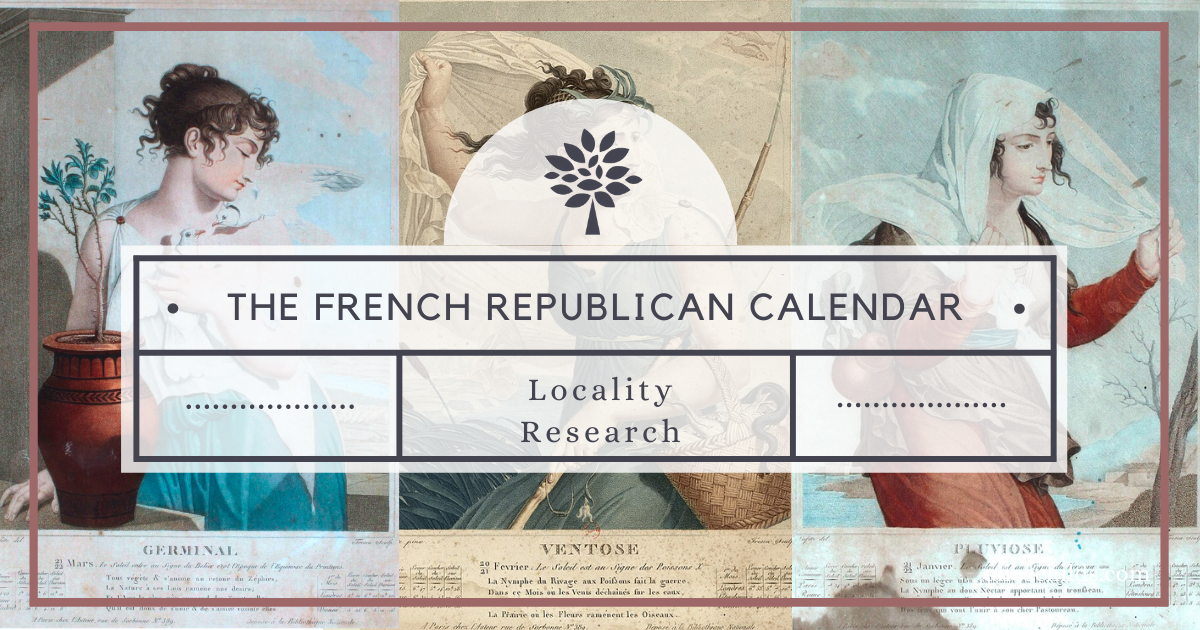
I recently completed a client project in which one of the objectives was to verify the genealogically significant information in some German and French birth, marriage, and death records. As I was abstracting the French records, I noticed some unfamiliar terminology in some of the dates. As you can see in this picture, the date on this record is 23 Brumaire an once de la Republique francaise, or 23 Brumaire year eleven of the Republic of France.

Curious about what Brumaire and year eleven of the Republic of France might mean, I turned to Google and learned that the French Republican Calendar, also known as the French Revolutionary Calendar, was implemented at the end of the French Revolution in 1792.[1] It was adopted for two reasons: first, to remove all religious and royalist influences from the calendar, and second, as a part of the effort to decimalize measurements in France. Politicians, astronomers, and mathematicians collaborated on its creation, and the months were named by a poet and a gardener. The calendar was abolished on 1 January 1806 by Napoleon.
The years were given Roman numerals, with year I beginning 22 September 1792. There were twelve months in each year, each divided into three 10-month weeks called décades. The five or six extra days were placed after the months and were called complementary days. The months were given names having to do with nature and the seasons in Paris and are as follows:
Autumn:
- Vendémiaire (vintage) starting 22, 23, or 24 September
- Brumaire (mist) starting 22, 23, or 24 October
- Frimaire (frost), starting 21, 22, or 23 November
Winter:
- Nivôse (snowy), starting 21, 22, or 23 December
- Pluviôse (rainy), starting 20, 21, or 22 January
- Ventôse (windy), starting 19, 20, or 21 February
Spring:
- Germinal (germination), starting 20 or 21 March
- Floréal (flower), starting 20 or 21 April
- Prairial (meadow), starting 20 or 21 May
Summer:
- Messidor (harvest), starting 19 or 20 June
- Thermidor or Fervidor (summer heat), starting 19 or 20 July
- Fructidor (fruit), starting 18 or 19 August
To translate the date in the example above to our modern calendar system, I utilized this calendar converter by Steve Morse.[2] In just a few moments I learned that 23 Brumaire year 11 translates to 14 November 1802.
One thing I love about genealogy is that I am continually learning with each new project. What is something you have learned as you have worked on your family history?
[1] “French Republican Calendar,” Wikipedia (https://en.wikipedia.org/wiki/French_Republican_calendar : accessed 9 July 2020). [2] Steven P. Morse, “French Calendar Conversions in One Step,” SteveMorse.org (https://stevemorse.org/jcal/french.html : accessed 9 July 2020).
